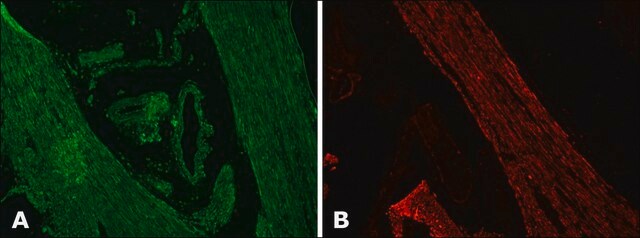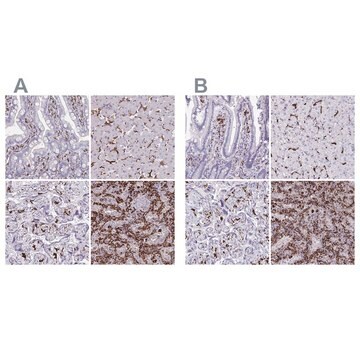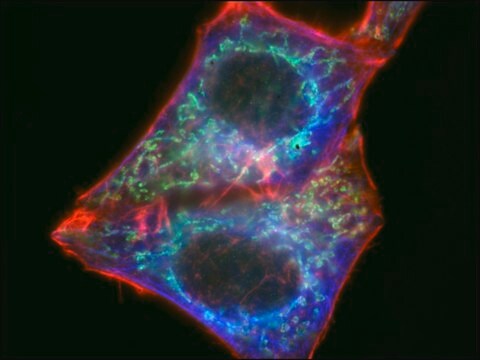SAB4200707
Anti-Desmin antibody, Mouse monoclonal

clone DE-U-10, purified from hybridoma cell culture
Sinonimo/i:
Anti-DES
About This Item
Prodotti consigliati
Forma dell’anticorpo
purified from hybridoma cell culture
Livello qualitativo
Tipo di anticorpo
primary antibodies
Clone
DE-U-10, monoclonal
Stato
buffered aqueous solution
PM
antigen ~55 kDa
Reattività contro le specie
rat, rabbit, hamster, porcine, goat, bovine, chicken, toad, sheep, mouse, human
Convalida avanzata
independent
Learn more about Antibody Enhanced Validation
Concentrazione
~1.0 mg/mL
tecniche
immunoblotting: 0.5-1 μg/mL using whole extract of mouse myoblast C2C12 cells
immunofluorescence: 2-5 μg/mL using mouse myoblast C2C12 cells
immunohistochemistry: 2.5-5 μg/mL using heat-retrieved formalin-fixed, paraffin-embedded Human Appendix
microarray: suitable
Isotipo
IgG1
N° accesso UniProt
Condizioni di spedizione
dry ice
Temperatura di conservazione
−20°C
modifica post-traduzionali bersaglio
unmodified
Informazioni sul gene
human ... DES(1674)
mouse ... Des(13346)
rat ... Des(64362)
Descrizione generale
Immunogeno
Applicazioni
- immunoblotting
- immunofluorescence
- immunohistochemistry
- microarray
Azioni biochim/fisiol
Stato fisico
Esclusione di responsabilità
Non trovi il prodotto giusto?
Prova il nostro Motore di ricerca dei prodotti.
Codice della classe di stoccaggio
10 - Combustible liquids
Punto d’infiammabilità (°F)
Not applicable
Punto d’infiammabilità (°C)
Not applicable
Scegli una delle versioni più recenti:
Certificati d'analisi (COA)
Non trovi la versione di tuo interesse?
Se hai bisogno di una versione specifica, puoi cercare il certificato tramite il numero di lotto.
Possiedi già questo prodotto?
I documenti relativi ai prodotti acquistati recentemente sono disponibili nell’Archivio dei documenti.
Il team dei nostri ricercatori vanta grande esperienza in tutte le aree della ricerca quali Life Science, scienza dei materiali, sintesi chimica, cromatografia, discipline analitiche, ecc..
Contatta l'Assistenza Tecnica.







